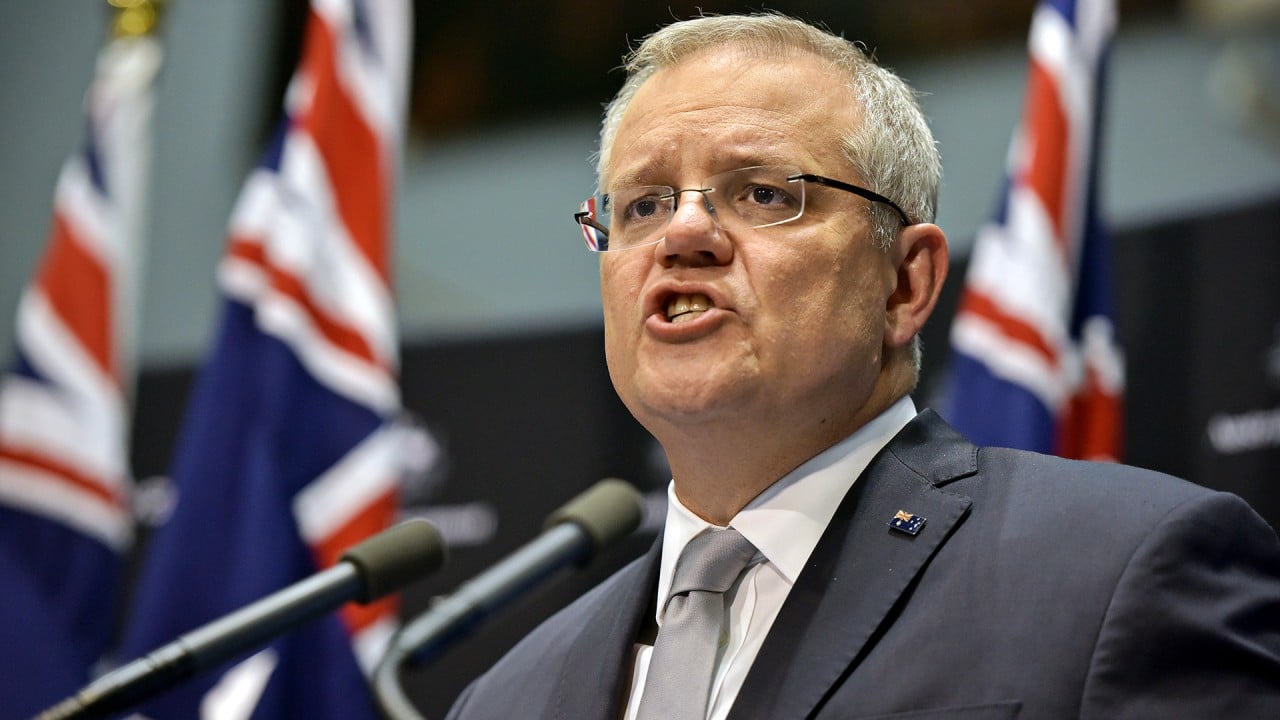
With Ted Hui’s arrival, Australia has scored political points against Beijing. But this is no moral victory
- Canberra-Beijing tensions are good for Hong Kong ex-lawmaker Ted Hui – but asylum seekers are still languishing
- This has gone on more than long enough. Let them in. Let them all in
Speaking to national broadcaster the ABC on March 11, Senator James Paterson – head of the parliamentary security and intelligence committee – said immigration policies were “purely a domestic sovereign issue for Australia”, and maintained a studied bafflement over why the Chinese government would regard Hui’s arrival as interference in its domestic affairs.
Fugitive former Hong Kong lawmaker Ted Hui reveals move to Australia

01:49
Australia suspends extradition treaty with Hong Kong, offers residency pathway for Hongkongers
Alas, the language used to justify Hui’s arrival is more than a little hypocritical.
“I think there will be a lot of people in Hong Kong who will be looking elsewhere for their future, and we welcome those people with open arms to Australia,” Senator Paterson told the ABC. “Not just because we are a place that welcomes people who flee difficult circumstances, but because frankly these people have a lot of value to add to Australia.”
More Hongkongers seeking asylum, with Australia, Canada their main destinations
Priya and Nades Murugappan – along with their Australian-born daughters, Kopika, five, and Tharunicaa, three – were then moved to a facility on Christmas Island, where they have remained since amid a protracted legal battle over their immigration status. In interviews, Priya has recounted the state of despair she and her husband are in, watching their children grow up in the limbo of detention.
“They are yearning for freedom, they want to be happy and free,” she told Australian broadcaster SBS News this month. “The conditions are not suitable for the kids’ health and mental state.”
As if the mental and physical costs were not obscene enough, Australia spends huge amounts every year to reduce asylum seekers to statistics – more than A$6 million (US$4.6 million) alone has been spent on detaining Priya and Nades and their children.
In the current financial year ending June, Canberra’s estimated spending on the fewer than 300 people held in Nauru and Papua New Guinea will come to almost A$1.2 billion, while it has blown through more than A$12 billion on what it calls “offshore processing” over the past eight financial years.
As the Refugee Council of Australia points out, Canberra’s asylum-seeker policies are deliberately punitive, aimed at deterring vulnerable people from seeking safety. They are the result of political efforts to turn the issue into a third rail, just so it can be successfully avoided by successive administrations from both sides of the political spectrum. The calculus is simple: the money spent on detention is worth the retention of power.

Which brings us back to Ted Hui, and the people of Hong Kong. In the ABC interview, speaking of the value Hongkongers can bring to Australia, Senator Paterson trotted out the old stereotype that “they’re highly entrepreneurial people”. But any economic advantage accrued will never be worth as much as the true commodity: points to be scored against Beijing.
All of us are coming off a year in which we huddled at home, the future shrouded in uncertainty. But there’s no vaccine to save asylum seekers from fear and pain compounded by the slow torture of years, not when there has been a decades-long failure of conscience and humanitarian instinct at the highest levels of the Australian government. The rhetoric surrounding Hui’s case is almost as galling as the alacrity with which he was allowed to enter Australia; both are signs that change can be expedited when it is politically expedient.
This has gone on more than long enough. Let them in. Let them all in.
Hari Raj is deputy chief production editor, Asia, at the Post

